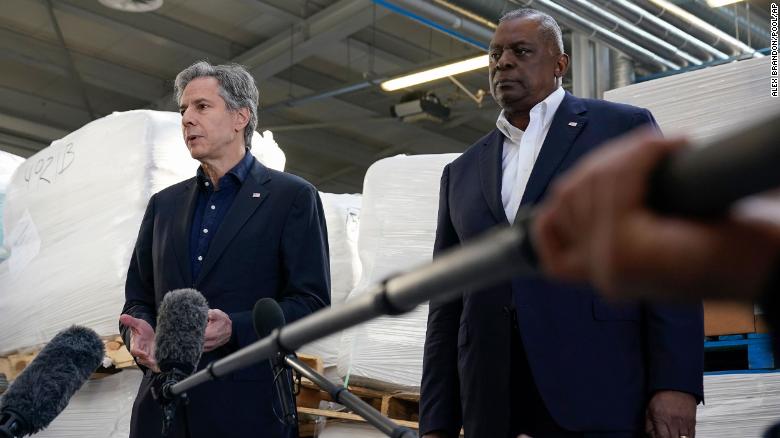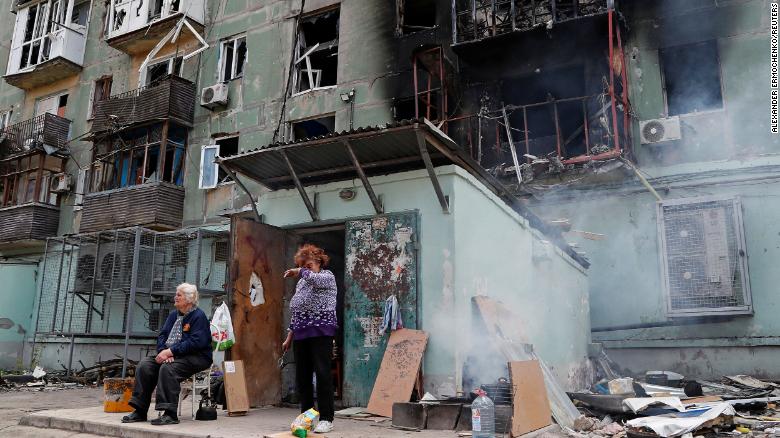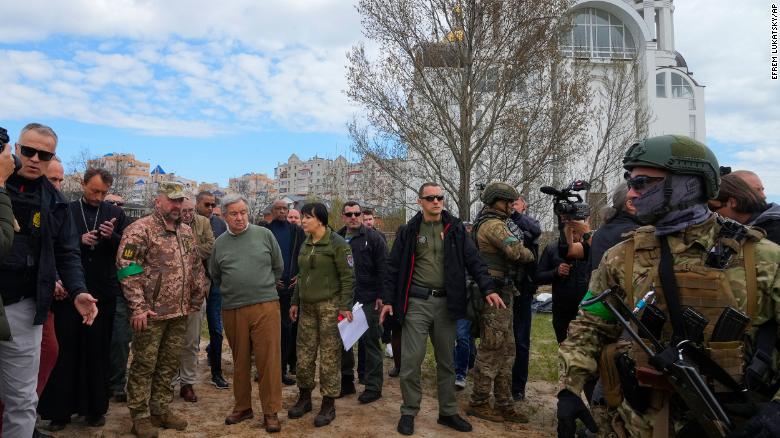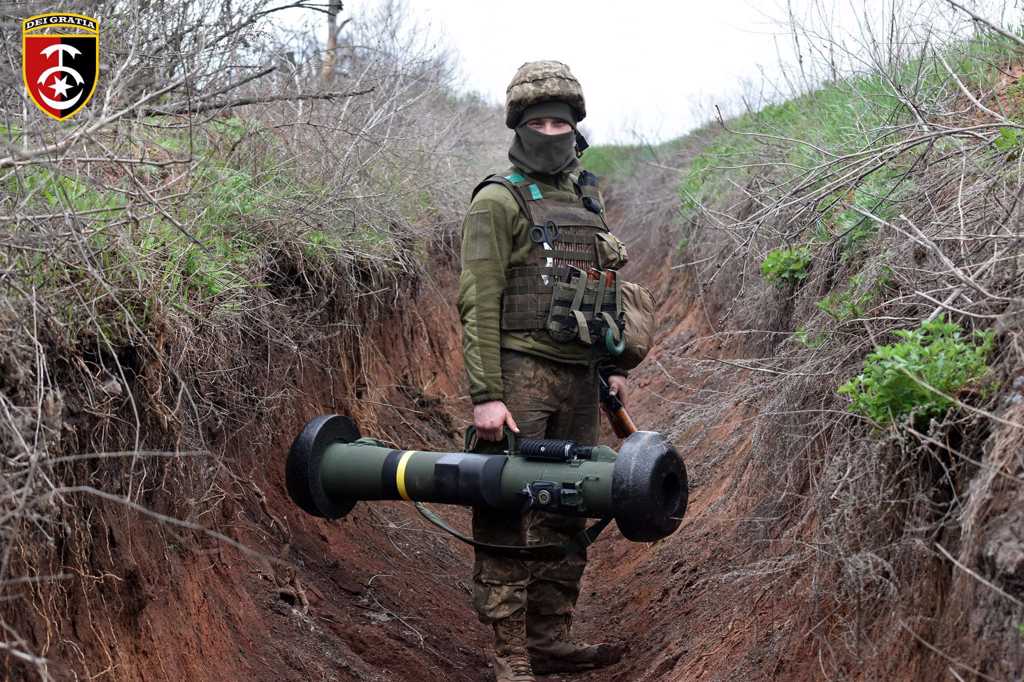Every day brought a sense of grave, historic events and decisions that will not just decide who wins the biggest land war between two countries in Europe since World War II, but will shape the course of the rest of the 21st century.
"Throughout our history, we've learned that when dictators do not pay the price for their aggression, they cause more chaos and engage in more aggression," Biden said. "They keep moving. And the costs, the threats to America and the world, keep rising. We can't let this happen."
Hawkish British Foreign Secretary Liz Truss was more blunt: "Geopolitics is back."
Over just a few days, a new realization dawned in Washington, Europe, Kyiv and Moscow. The war is now transitioning into
a long, bitter struggle, which will likely cost thousands more lives and tens of billions of dollars. The US strategy is now unequivocal and public -- to weaken Russia to diminish its global threat. There are fresh signs of the Kremlin's desire to eradicate Ukrainian culture in its
pulverizing of eastern and southern cities. And Putin unleashed a new front -- energy warfare -- as he cut off natural gas supplies to Bulgaria and Poland in what the EU quickly branded "blackmail."
As these conflicting aims came into focus, nuclear rhetoric heated up yet again, with Russia keen to warn of the implied power of its vast arsenal, and Washington trying to avoid an escalatory cycle that could lead to a direct superpower clash.
The carnage in Ukraine, meanwhile, goes on. Vicious attacks and sieges of civilian areas prefaced Russia's new assault on the south and east -- battles that could decide whether Ukraine survives as a nation. Yet this week also brought the first signs that Russians accused of atrocities could face accountability.
But the alarming reality that no credible diplomatic track exists to end the war was laid bare when Russian missiles slammed into Kyiv on Thursday while
UN Secretary-General António Guterres was still in town on an apparently futile mission, which had begun earlier in the week with tense talks with Putin.
An expanding war

Secretary of State Antony Blinken and Secretary of Defense Lloyd Austin speak with reporters on April 25, 2022, in Poland.
A visit to Kyiv by
Secretary of Defense Lloyd Austin and Secretary of State Antony Blinken under a news blackout on Sunday set the stage for a week in which the West threw itself ever deeper into what looks like a proxy war with Russia.
- "We want to see Russia weakened to the degree that it can't do the kinds of things that it has done in invading Ukraine," Austin said in Poland after returning from Ukraine.
- Blinken conjured a long-term future that must have antagonized the strongman in the Kremlin, saying there would be an independent, sovereign Ukraine "a lot longer than there's going to be a Vladimir Putin."
- The US backed up its new strategic clarity by gathering key global defense ministers in Germany and committing to monthly meetings to assess the needs of the government in Kyiv.
- These moves fueled a growing sense that the war in Ukraine will not end any time soon. NATO Secretary General Jens Stoltenberg said Thursday that the war could "drag on and last for months and years."
- Truss, meanwhile, urged for an expansion of US and Western military aid to guard against Russian expansionism -- calling for the arming of nations in the Western Balkans and non-NATO states Georgia and Moldova.
- Russia responded to the stiffened Western strategy by taking its own steps to widen the footprint of the conflict, cutting off natural gas exports to Poland and Bulgaria after they refused to join its sanctions-evading scheme to pay their bills in rubles. A further widening of energy warfare could pitch Europe into recession.
- The cataclysmic global consequences of the war were meanwhile underscored when the World Bank warned of the worst commodities shock in 50 years. Russia and Ukraine are key producers of coal, oil, natural gas and cooking oils, and the budgets of millions of people around the world are going to take a hit. The likely failure of this summer's harvest in Ukraine -- a major source of wheat and corn for the world -- could send food prices into a new inflationary spiral and fuel greater food insecurity. In the US, higher prices could have big impact on the midterm elections in November.
- Biden ended a week that reshaped the world by unveiling an extraordinary $33 billion request to Congress for weapons, economic support and humanitarian aid to Ukraine, warning, "The cost of this fight is not cheap."
The President's request underscored how the war in Ukraine is not just a defining stand of his administration but that the events of recent days will cause political, economic and geopolitical chain reactions that will be impossible to predict and difficult to control.
Nuclear saber rattling
While casual talk about the use of the world's most dangerous weapons might be designed to scare Western populations, it nevertheless underscored that the possibility of a disastrous clash between the world's two most powerful nuclear nations -- the United States and Russia -- will exist as long as the war drags on.
Some US experts dismiss the Russia tough talk as a sign that Putin is frustrated by failing to fulfill his strategic goals in Ukraine. But it also serves to remind Western leaders that their massive injection of arms into Ukraine could come up against Putin's hard-to-define red lines and cause a dangerous escalation. And fears linger that if he is pushed into a corner, Putin could deploy one of Russia's smaller-yield tactical nuclear weapons on the battlefield in Ukraine.
- As the US laid out its toughened approach to the war -- weakening Russian military power -- Russian Foreign Minister Sergey Lavrov once again resorted to the familiar Russian tactic of talking about nuclear war, warning, "The danger is real and we must not underestimate it."
- For the US, the Chairman of the Joint Chiefs of Staff Gen. Mark Milley told CNN that Russia should not be throwing such inflammatory rhetoric. He said it was "completely irresponsible" for any senior leader of a nuclear power to start "rattling a nuclear saber."
- But Putin wasn't listening. After several times darkly warning of the potency of Russia's nuclear arsenal at the start of the war, the Russian President was at it again. He said that there would be a "lightning fast" response from Russia if other countries interfered in Ukraine. "We have all the tools for this -- ones that no one can brag about. And we won't brag. We will use them if needed. And I want everyone to know this," he told lawmakers in St. Petersburg.
- This all caused Biden to warn about the danger of such rhetoric. "No one should be making idle comments about the use of nuclear weapons or the possibility of the need to use them," Biden said at the White House Thursday.
- Bitter exchanges like these between Russia and the United States have driven relations between the two countries "into the depths," US Ambassador to Russia John Sullivan told CNN on Thursday.
The carnage gets worse

Local residents are seen outside an apartment building damaged in Mariupol on April 28, 2022.
The Russian effort to control eastern and southern Ukraine and to strangle the country by cutting off its access to the Black Sea --- a new phase of Moscow's war strategy after failing to capture Kyiv -- is intensifying. But one thing hasn't changed.
Ukrainian civilians are bearing the brunt of the horror in an expression of Putin's resolve and cruelty. Russian soldiers are also apparently paying an extraordinary price for their leader's obsession with Ukraine.
- Ukraine's military said on Thursday that Russian forces are spraying intense fire on multiple fronts. They are seeking breakthroughs in the Izium area of eastern Ukraine and trying to advance through the Donetsk and Luhansk regions.
- In another indicator that the war could drag on for much longer, a senior US defense official said that Russian forces were only making "slow and incremental" progress in the Donbas region, partly owing to logistics and sustainment problems.
- But Russia's attacks on civilians are still causing appalling carnage. Ivan Fedorov, the mayor of the city of Melitopol, warned this week that Putin's forces wanted to "kill all of (the) Ukrainian nation."
- A CNN team meanwhile toured the city of Kharkiv in northeastern Ukraine, which has been under sustained Russian bombardment, and discovered extraordinary devastation.
- A staggering new assessment by the UN High Commissioner for Refugees projected 8.3 million refugees are now expected to flee the country. By Monday, 5.2 million had already gone.
- Putin's callous disregard for life is not confined to the Ukrainians who are the target of his guns. British Defense Secretary Ben Wallace said on Monday that approximately 15,000 Russian military personnel have been killed in Ukraine in just over two months.
- On one more hopeful note, there were signs this week that Russians could face some accountability for apparent war crimes. Drone video authenticated and geolocated by CNN shows Russian vehicles on the streets near the bodies of civilians killed in Bucha, outside Kyiv. The evidence could help disprove Russian denials that its troops executed Ukrainians in cold blood.
- And Ukraine's General Prosecutor Iryna Venediktova said Thursday that 10 Russian soldiers allegedly involved in torturing civilians in the town had been identified.
Diplomacy goes cold

UN Secretary-General António Guterres, fourth left, is seen during his visit to Bucha, on the outskirts of Kyiv, on April 28, 2022.
The big diplomatic hope of the week was the trip by the UN's Guterres to both Moscow and Kyiv. But neither side seems to see a rationale for talking right now. This is partly due to Ukraine's understandable mistrust of Putin after his unprovoked invasion. But there is also a sense in Ukraine and in western capitals that Putin's indifference to the bloody cost of his war is a clear sign that he is committed to grinding on until he has reasonable grounds to declare some kind of victory that is not yet in sight.
- Guterres told CNN that Putin had agreed in principle to allow the UN and the International Red Cross to help evacuate citizens from the Azovstal steel plant in Mariupol, the last bastion of Ukrainian resistance in the city.
- But his trip to Kyiv on Thursday, which ended as Russian missiles pounded the city, was an apt symbol of Russia's current attitude toward diplomacy -- and its contempt for the rule of international law, which the United Nations was set up to preserve.
The dispiriting reality at the end of a defining week for the West and Russia is that peace in Ukraine may be further away than it has been since the invasion. And while the West can send a torrent of arms, ammunition and aid into the country, it cannot end a war that will send painful and dangerous political, military and economic shock waves around the world for months to come. Only Putin can do that.
As Guterres put it in his
interview with CNN's Anderson Cooper, "The war will not end with meetings. The war will end when the Russian Federation decides to end it and when there is a serious political agreement. We can have all meetings but that is not what will end the war."













